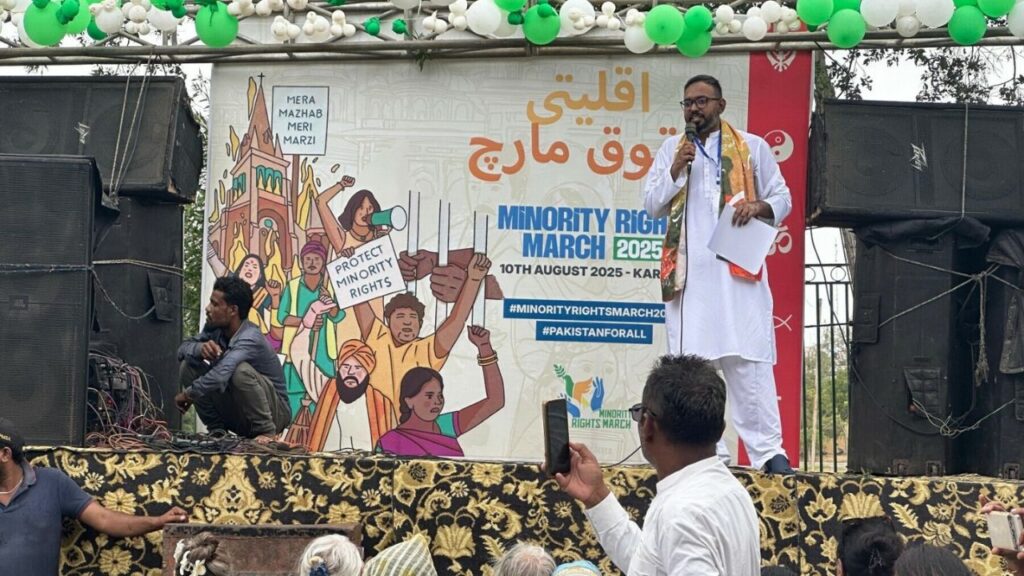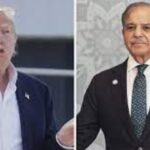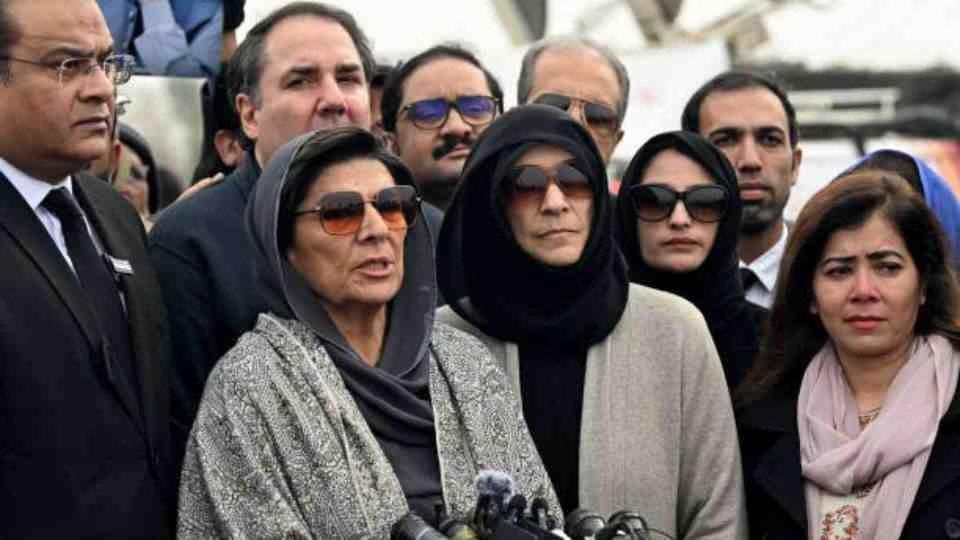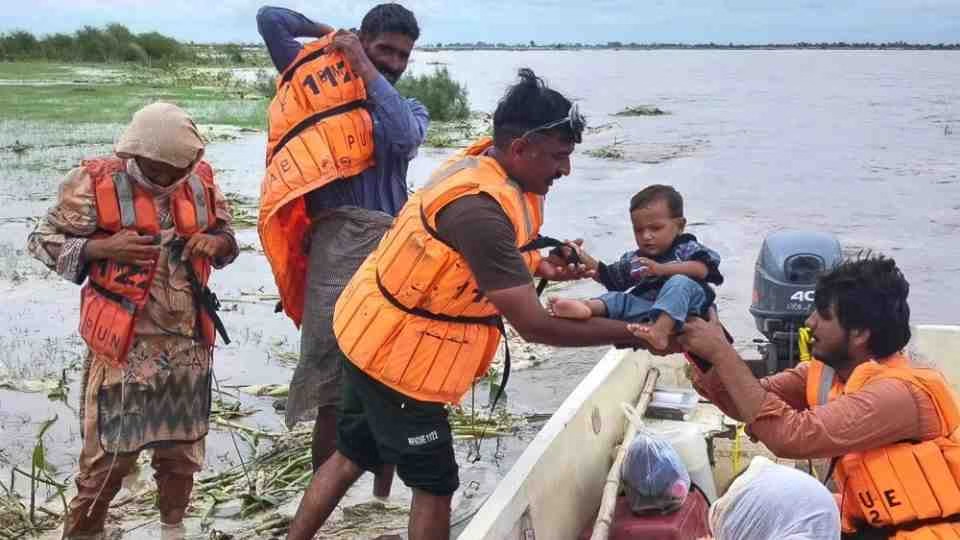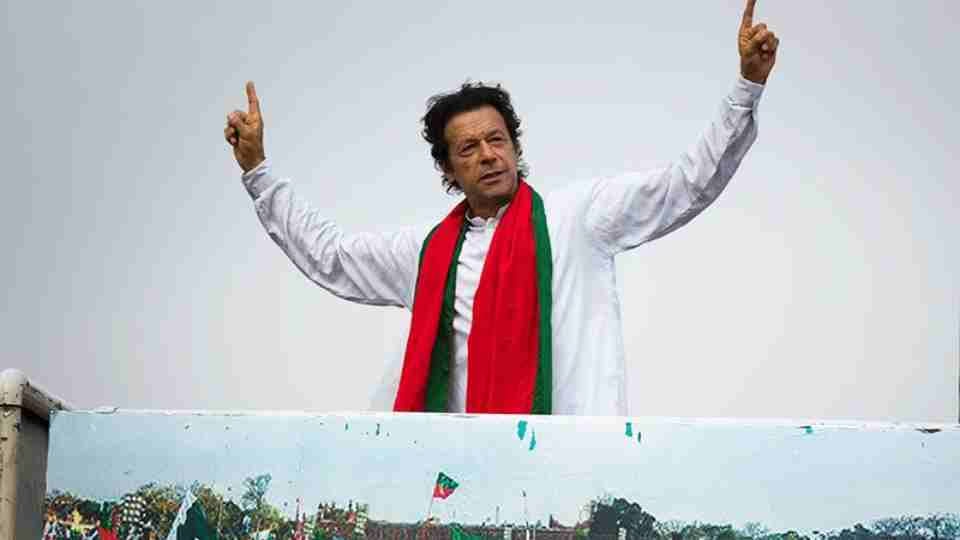“I have a problem with the term ‘minority’. It only serves to otherise religious groups and reinforce divides. We are all equal citizens of Pakistan,” declared Pastor Daniel at Karachi’s YMCA, where hundreds gathered for the Minority Rights March on Sunday — celebrated a day earlier because minorities would not be given an official holiday.
The event echoed Muhammad Ali Jinnah’s historic vision of religious freedom, a promise still unfulfilled for many communities. “Christians like me cannot preach openly and often live in fear,” said Daniel of Philadelphia Pentecostal Church.
The march focused on two core demands: the denationalisation of educational institutions and an end to forced conversions. Organiser Luke Victor highlighted how nationalised Christian-founded schools, which once educated leaders like Jinnah, remain under government control despite a 40-year-old denationalisation policy. “Article 22 of our Constitution gives us the right to manage our own institutions,” he said, calling the policy “a robbery of our heritage.”
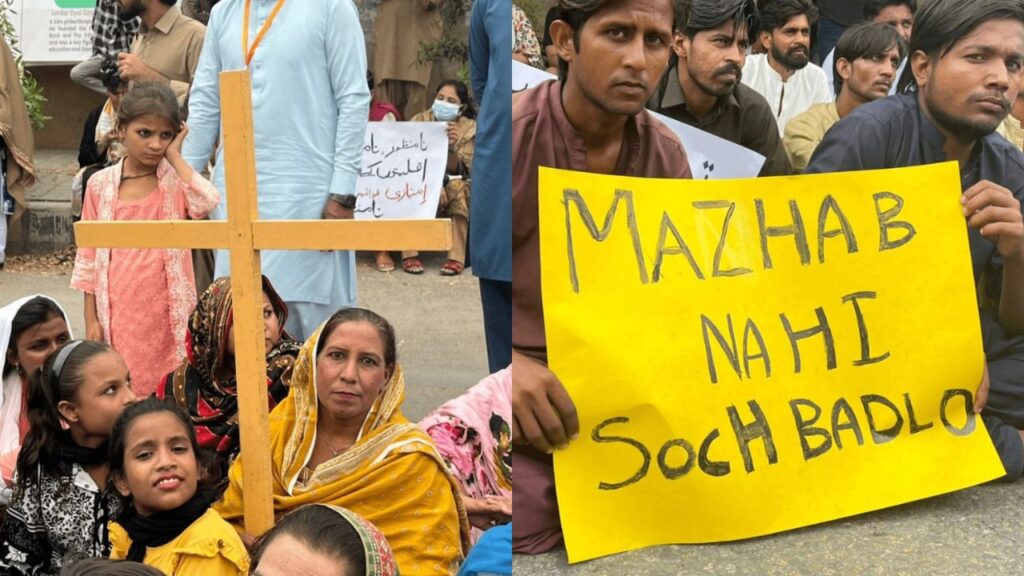
Many speakers pointed to systemic discrimination keeping minorities from schools they originally built. Institutions like Karachi Grammar School — founded by Reverend Henry Brereton — now have few Christian students, while others like the YMCA lie vacant and misused. Social media campaigns under hashtags like #EducationForAll and #StopForcedConversions amplified these concerns.
The second demand — ending forced conversions — was underscored by chants of “mazhab nahi, soch badlo” (change your mindset, not religion). Activists condemned the abduction and forced conversion of underage Hindu girls, questioning why such conversions are allowed before 18 when legal age limits apply for other rights like driving or firearm ownership.
According to the Human Rights Commission of Pakistan, Sindh — home to the largest Hindu population — has seen significant Hindu migration to India due to religious persecution. Rampal Singh, a march organiser, stressed unity: “This is not a protest but a celebration. We stand with our Muslim brothers as they stand with us.”
Activist Suhani Naveej described how fear of abductions has led Hindu parents to avoid registering their daughters for national ID cards, which in turn blocks access to education and healthcare. “The state’s negligence has deepened inequality,” she said, urging government support to rebuild trust.
Other issues raised included workplace harassment that drives minority nurses abroad, and discriminatory job postings for sanitation work exclusively targeting non-Muslims. “If cleanliness is half of faith, why is it the sole responsibility of minorities?” asked Sanjana Kumar of the Jagruti Foundation, prompting chants of “shame, shame.”
Despite the heavy topics, the march ended on a hopeful note with music, dancing, and chants directed toward the nearby Sindh Assembly. “We lived here before Pakistan was formed, and we will continue to live here,” said organiser Najma Maheshwari. “We have been fighting all our lives and will continue until our last breath.”

